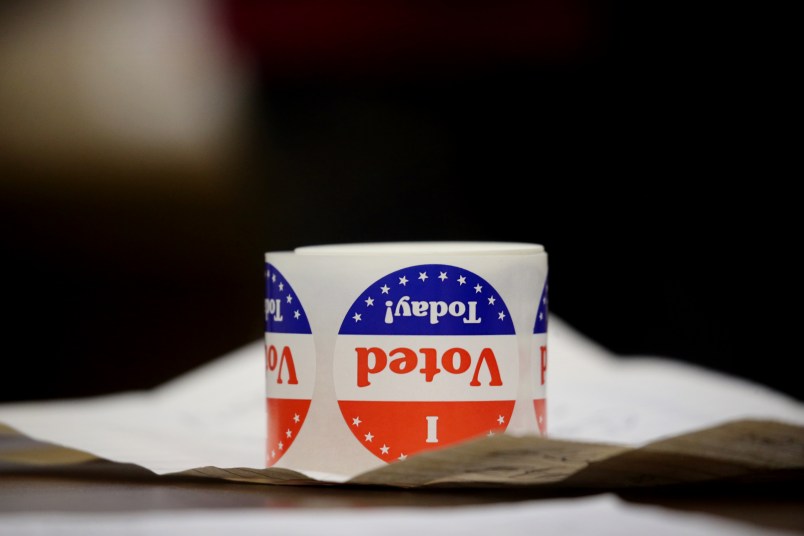A new report identifies Texas, Georgia and Arizona — all states where Democrats made significant inroads in 2020 — as the biggest producers of restrictive voter legislation.
The report, published by NYU’s Brennan Center for Justice, identified 49 such bills from Texas, 25 from Georgia and 23 from Arizona. In total, the number of restrictive bills has climbed to 361 bills in 47 states, over 100 more than the center’s last tally in late February.
“Bills are actively moving in the Texas and Arizona statehouses, and Georgia enacted an omnibus voter suppression bill last week,” the report read.
The Texas legislation includes measures that would loosen the rules around partisan poll watchers at voting sites, alarming critics about the possibility of increased voter intimidation, and would resurrect an attempted but ultimately botched voter purge from 2019.
In Arizona, the bills beef up the amount of information needed to vote absentee, and shorten the window for voters to return their ballots. Two of them, per the report, also prohibit automatic voter registration and Election Day registration (two measures the state doesn’t even have at present) in a seeming attempt to create a conflict if HR1, the federal voting rights package, is passed.
The Georgia omnibus law, signed last week, has garnered calls for boycotts, multiple lawsuits and prompted companies to disavow it after the fact.
Most of the bills, the report said, impose greater restrictions on absentee voting. That trend was encouraged by the Democratic skew of absentee voting amid the pandemic, when former President Donald Trump constantly said, falsely, that mail-in voting was rife with fraud and turned his supporters off of the voting method. It’s not yet clear that those restrictions won’t end up hurting Republican voters too when COVID-19 ceases to be a factor.
In light of the nationwide wave of restrictive bills, Democrats are rallying behind HR1 to expand and protect voting rights. While that package, if signed into law, would counteract some of the measures in the restrictive bills, the report said, some GOP legislatures are setting up contingency measures.
“Texas lawmakers have proposed setting up a parallel system with its own rules for state contests if the federal law is enacted,” it read.
HR1 seems to be going nowhere fast though. It would need 60 votes in the Senate to overcome the filibuster, a very remote possibility based on Republican commentary so far. Some Democrats, such as Sen. Raphael Warnock (D-GA), are using the logjam to frame the argument for doing away with the filibuster, juxtaposing a choice between protecting the sacred right to vote and preserving a Senate procedure that was often used by a racist legislators to block civil rights bills.
Republican interest groups, particularly worried about the campaign finance measures in the package, are reportedly counting on GOP lawmakers to kill the package since they’ve had very little success in messaging against it, even with their own constituents.
Senate Majority Leader Chuck Schumer (D-NY) has insisted that he will bring the package to the floor for a vote after the recess, and that “everything is on the table” when it comes to getting it passed.



